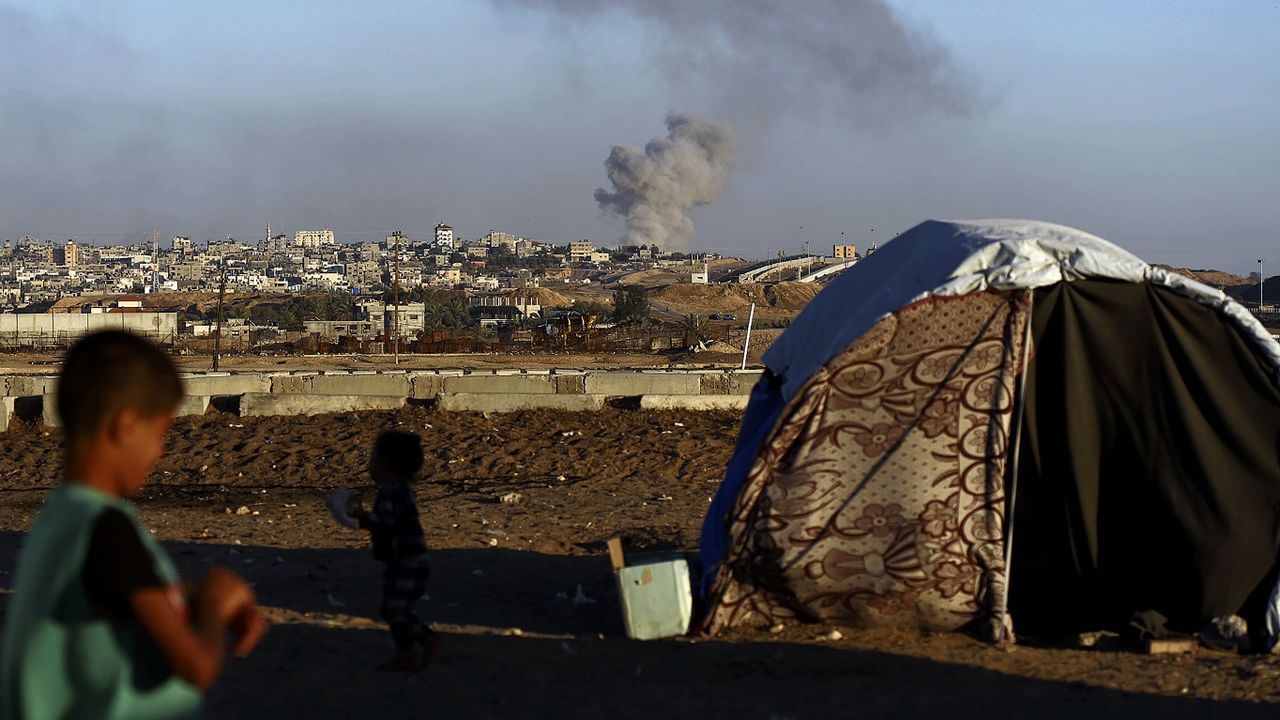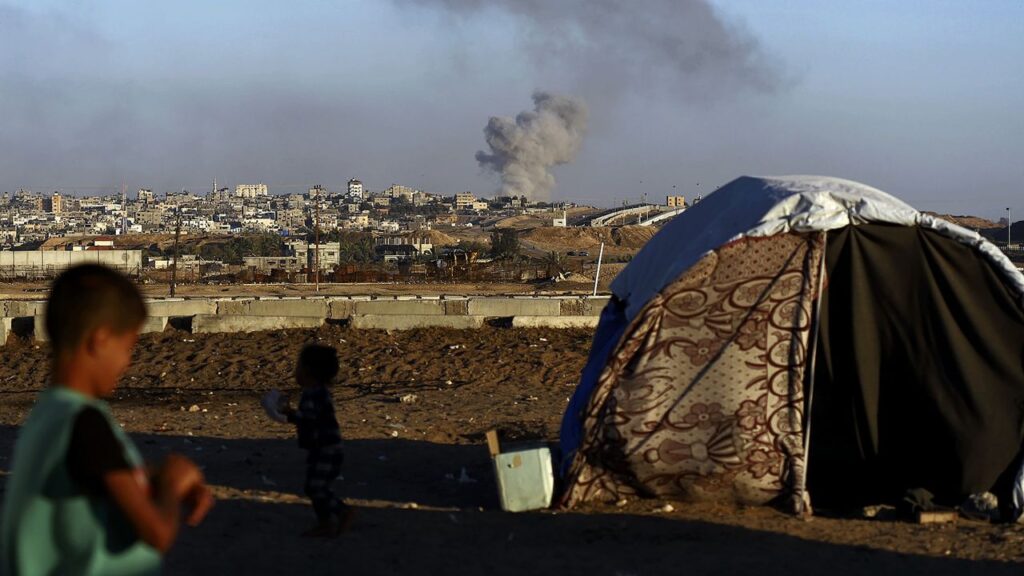
On Friday, the International Court of Justice (ICJ) issued an emergency order against Israel under the 1948 Genocide Convention. Citing reports that “800,000 people have been displaced from Rafah” as of May 18, the ICJ ruled by 13 votes to 2 that “Israel must immediately halt its military offensive” and cease actions that “inflict on the Palestinian group in Gaza conditions of life that could bring about its physical destruction in whole or in part.”
Political leaders in the United States and Israel immediately responded to the ruling with arrogant ferocity, insisting that Israel’s offensive in Rafah must continue.
Israel’s far-right finance minister Bezalel Smotrich responded to the ruling by comparing the ICJ, in the same breath, to “Nazis,” “Hamas” and “ISIS.” US Senator Lindsey Graham, who earlier this month called for Gaza to be bombed like Hiroshima and Nagasaki, responded to the ruling by declaring that “the ICJ can go to hell.”
“It is long past time to stand up to these so-called international justice organizations associated with the UN,” Graham declared. “This will and should be ignored by Israel.”
The responses of US and Israeli officials to the ICJ ruling once again recall the words of US Supreme Court Justice Robert Jackson in his opening statement at the Nuremberg Trials of Nazi war criminals in 1945. Jackson said:
[T]hese men are surprised that this is the law; they really are surprised that there is any such thing as law …. any law at all was to these men simply a propaganda device to be invoked when it helped and to be ignored when it would condemn what they wanted to do.
The ICJ ruling massively discredits and exposes US-NATO imperialism, which has backed the Gaza genocide to the hilt while at the same time draping its war plans against Russia, China and Iran in the guise of “preserving a rules-based international order.”
The defiant responses to the ICJ ruling by US and Israeli political leaders have far-reaching historical implications, both as a milestone in the collapse of the postwar international order, which has accelerated following the dissolution of the USSR, and in the inevitable impact on global popular consciousness.
The ICJ ruling vindicates the participation of millions of people around the world in demonstrations against the Gaza genocide in the face of dishonest attempts to label them as “antisemitic.”
The ruling will be celebrated by students and academic workers, like those who voted to strike at the University of California, who have braved a bipartisan campaign of police beatings, rubber bullets, pepper spray, expulsion, slander, and mass arrests for attempting to say out loud, in peaceful demonstrations, what the chief justice of the ICJ said Friday in The Hague.
The ICJ, the highest court of the United Nations, issued its ruling Friday in response to the latest request by South Africa for “preliminary measures,” or emergency interim orders, as part of proceedings against Israel under the Genocide Convention that have been under way since December. In hearingslast week, South Africa’s representatives accused Israel of pursuing a “coordinated plan aimed at the destruction of the essential foundations of Palestinian life.”
The ICJ’s ruling Friday places particular emphasis on the Israeli military assault on Rafah, the “last refuge” of hundreds of thousands of people who have been displaced from other areas of Gaza, often multiple times. Under these conditions, Israel’s mass “evacuation orders” amount to orders for the affected people to cease to exist, because there is nowhere else in Gaza left for them to go.
After previously calling an Israeli military offensive in Rafah a “red line,” the Biden administration allowed the operation to go forward this month. To date, this operation—a murder spree targeting starving refugees, not a military offensive in any conventional sense—has in fact displaced nearly a million people in total.
In addition to demanding an immediate halt to the assault on Rafah, the ICJ’s ruling insists that Israel allow access to Gaza by UN war crimes investigators. It also accuses Israel of violating its January order requiring the “preservation of evidence related to allegations of acts within the scope of” the Genocide Convention.
While the ICJ’s ruling is written in a formal, mechanical style, these details send an unmistakable signal that prosecutions for the crime of genocide are not foreclosed. The ICJ also accused Israel of ignoring its March 28 order requiring the “unhindered provision at scale by all concerned of urgently needed basic services and humanitarian assistance.”
